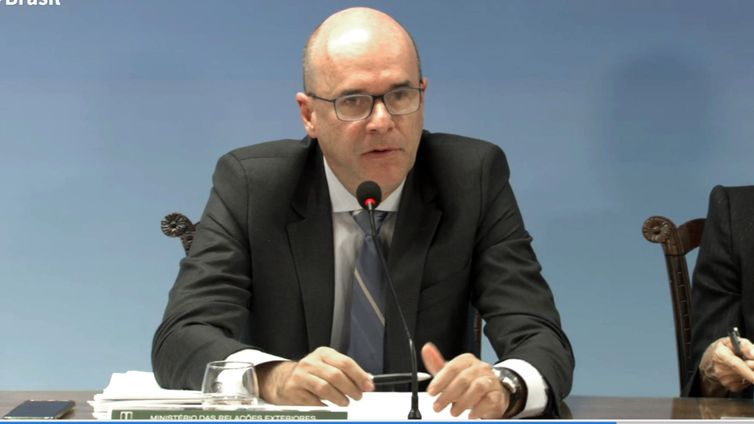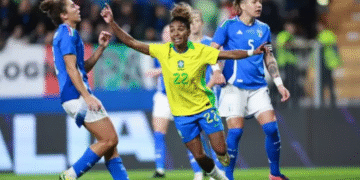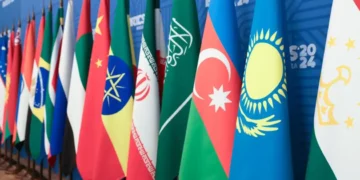Representing the Brazilian government at the General Council meeting of the World Trade Organization (WTO), the secretary for economic and financial affairs of the Ministry of Foreign Relations, Ambassador Philip Fox-Drummond Gough, criticized the use of “unilateral trade measures as a tool for interfering in the internal affairs of other countries.”![]()
![]()
During the meeting in Geneva on July 22 and 23, topics related to the need to respect the multilateral trading system were discussed at Brazil’s initiative.
“Unfortunately, at this very moment, we are witnessing an unprecedented attack on the multilateral trading system and the credibility of the WTO. Arbitrary tariffs, announced and implemented in a chaotic manner, are disrupting global value chains. They risk plunging the world economy into a spiral of high prices and stagnation,” said the Brazilian diplomat.
Recently, US President Donald Trump unveiled an increase in tariffs to be applied from August 1 on products from Brazil and other countries exported to the US.
In the case of Brazil, Trump has associated the measure with supposed trade disadvantages in the relationship between the two countries and with the way in which the investigations against former President Jair Bolsonaro have been conducted by the Brazilian Supreme Court.
“In addition to the widespread—and even more worrying—violations of international trade rules, we are witnessing an extremely dangerous shift towards the use of tariffs as a tool to interfere in the internal affairs of third countries,” argued the Brazilian diplomat.
Structural reform
Faced with this worrying scenario, Brazil once again advocated that countries should redouble their efforts in favor of a structural reform of the multilateral trade system and the full recovery of the WTO’s role.
“We will continue to prioritize negotiated solutions and rely on good diplomatic and trade relations. If negotiations fail, we will resort to all available legal means to defend our economy and our people—and that includes the WTO dispute settlement system,” he added.
The Brazilian diplomat went on to say that failure to find solutions will promote “a negative spiral of measures and countermeasures that will make us poorer and take us further away from the goals of prosperity and sustainable development.”
Uniting developing economies
Finally, he said that Brazil is ready to start working towards a thorough structural reform of the WTO, and advocated uniting developing economies to deal with the situation.
“Developing economies—the most vulnerable to acts of trade coercion—must unite in defense of the rules-based multilateral trading system. Negotiations based on power games are a dangerous shortcut to instability and war.”
Support
Brazil’s position has won the support of around 40 countries—including the European Union, Canada, India, Russia, and China.
Crédito arquivo Nacional EBC
Leia Mais em: O Maringá










